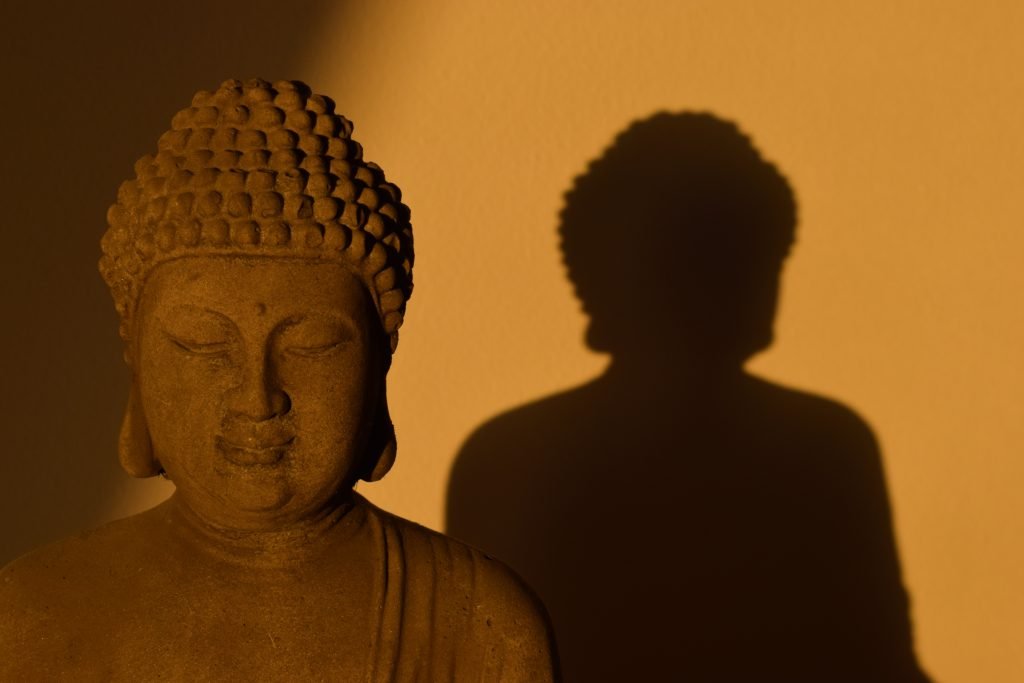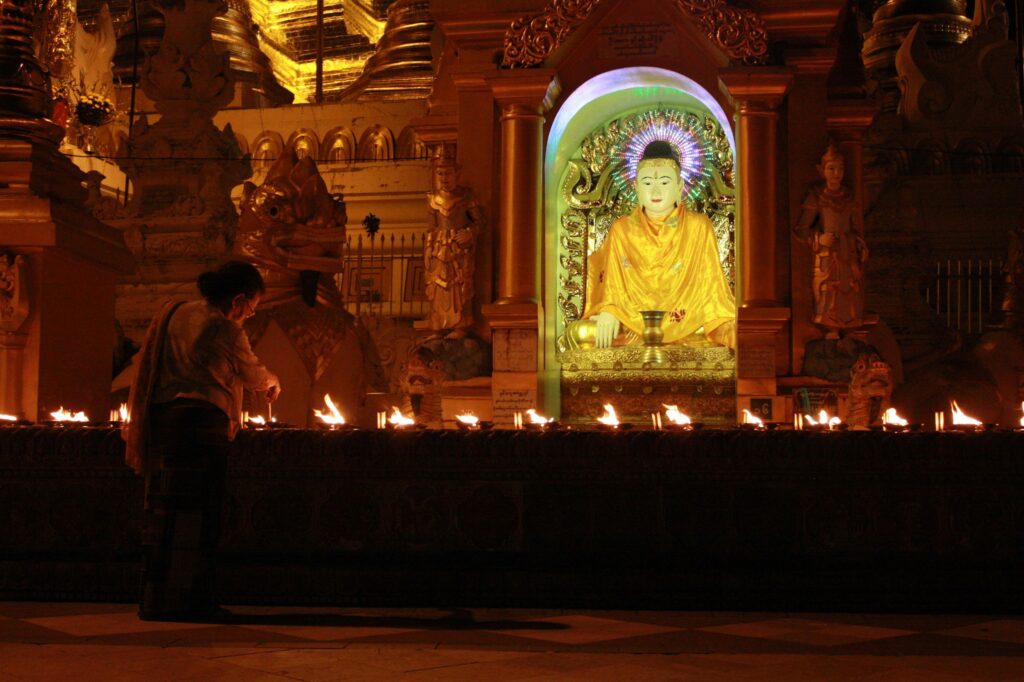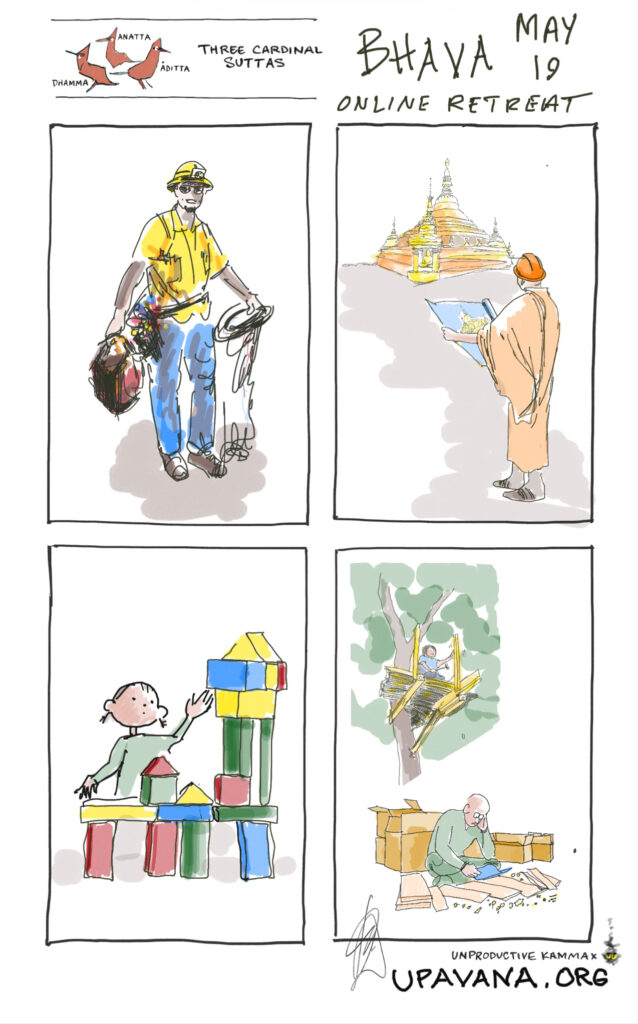Intention Daylong Talks
Morning: Tahn Pamutto does a deep investigation of the nature of Intention in Buddhism. It is the meeting point of two important concepts – that being Right Intention, or Samma Saṅkappa, and Volitional Formations, or Saṅkhāra. When we see how one feeds the other in an endless loop, and how zooming out to get a […]
Intention Daylong Talks Read More »



